 Directed by John Krasinski
Rated PG-13
Reviewed by James Rosario on April 11, 2018
Directed by John Krasinski
Rated PG-13
Reviewed by James Rosario on April 11, 2018
There was no way I thought I was going to enjoy a PG-13 horror movie as much as I enjoyed
A Quiet Place. This is a case study on how to tackle modern genre horror. Far too many horror films (and sci-fi, and romantic comedies, and thrillers…) suffer from the highly infectious “great premise, now where’s the story?” syndrome, but what Krasinski has pulled off is one hell of feat. It’s a tightly packed and measured story whose characters are anything but disposable. Even within the far-out world they inhabit, they are relatable and believable, making it very easy to root for them. You truly want them to survive, and are invested in how they do it. They aren’t allowed to make a sound, yet they drive the story so effectively that by the end of the introduction, we inhabit this nasty world with them. Is it a cultural phenomenon like
Black Panther or a biting commentary like
Get Out? Certainly not, but it’s a damned good scary movie.
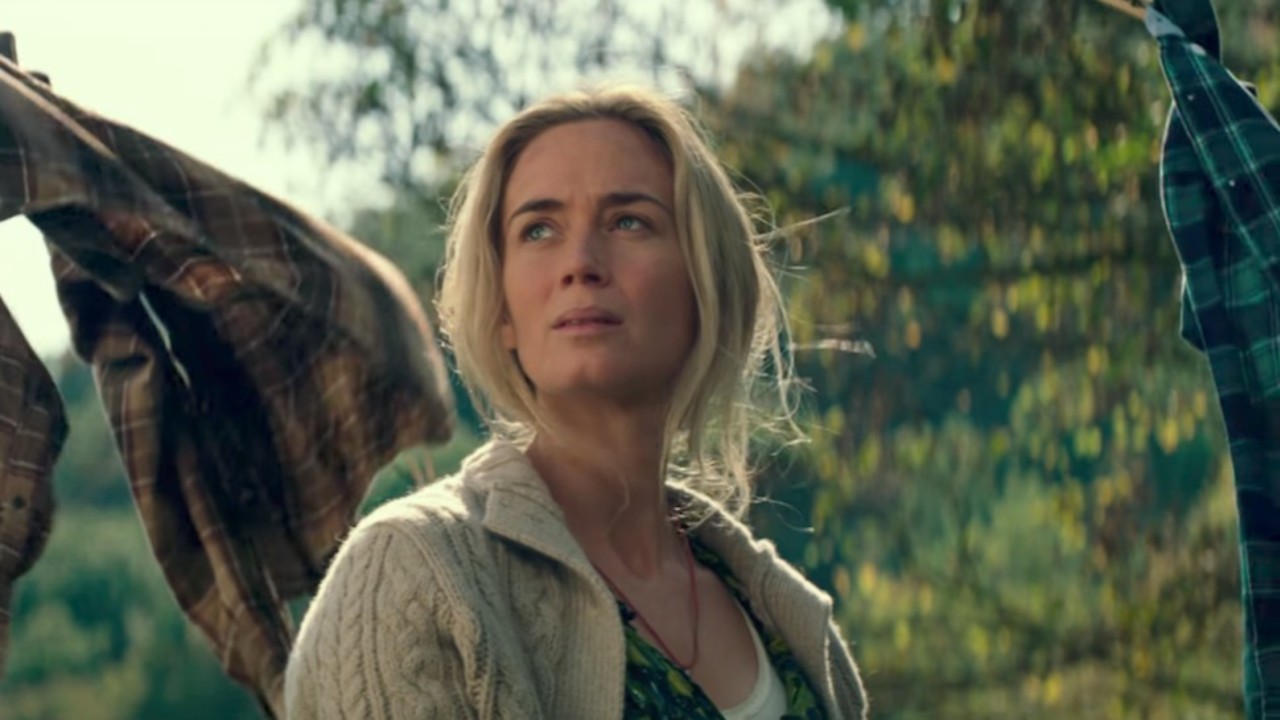
The premise is as simple as it gets—an unknown species whose only means of hunting is a heightened sense of hearing stalks the survivors of the world they’ve decimated—yet it unfolds like the layers of an onion. Krasinksi never tells us exactly what’s happened before we join the story. He leaves it mostly to our imaginations by only offering small hints via glimpses of old newspapers and scribbled notes on white boards. Very early in the film, the stakes are made brutally clear. If you make a sound—any noise at all—something will come out of the woods and tear you apart.
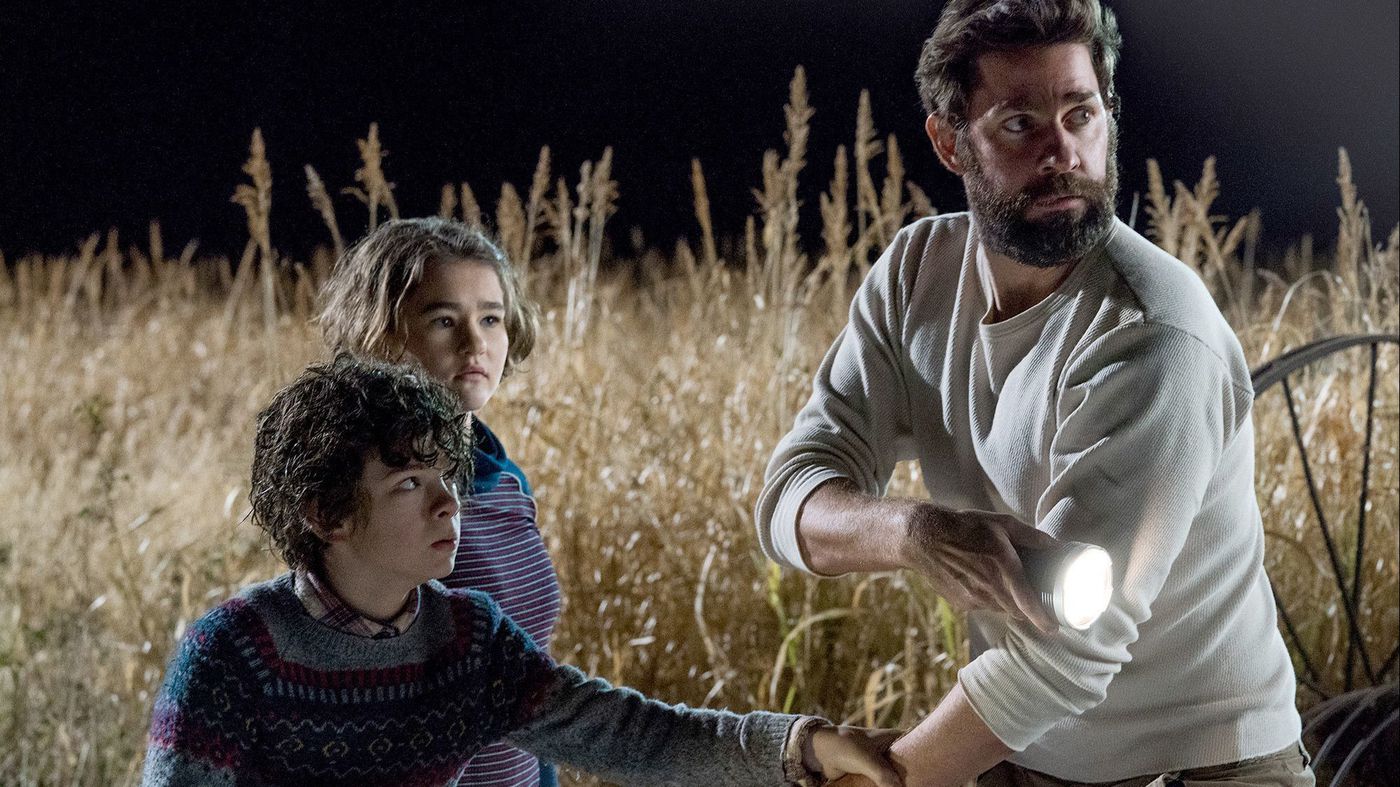 A Quiet Place
A Quiet Place could have gone off the rails at any point, but it never does. This is due in part to the efficiency of the story and to the effectiveness of the performances. There is no wasted time, allowing the tension to build and build. Every scene serves a functional purpose in moving the story forward, and every shot is necessary. Everything is shown and revealed exactly when is should be. More importantly, if anything that
is shown would have been left out, well, off the rails it goes. Long shots of the farm and surrounding areas help this along. It’s a sprawling area—littered with a maze of Christmas lights indicating safe (and quiet) walkways—but we are given such an accurate sense of placement that when things get chaotic, we never feel lost. This might seem like an insignificant detail, but I assure you it’s not. The devil is in the details, and in this case, the details make all the difference.
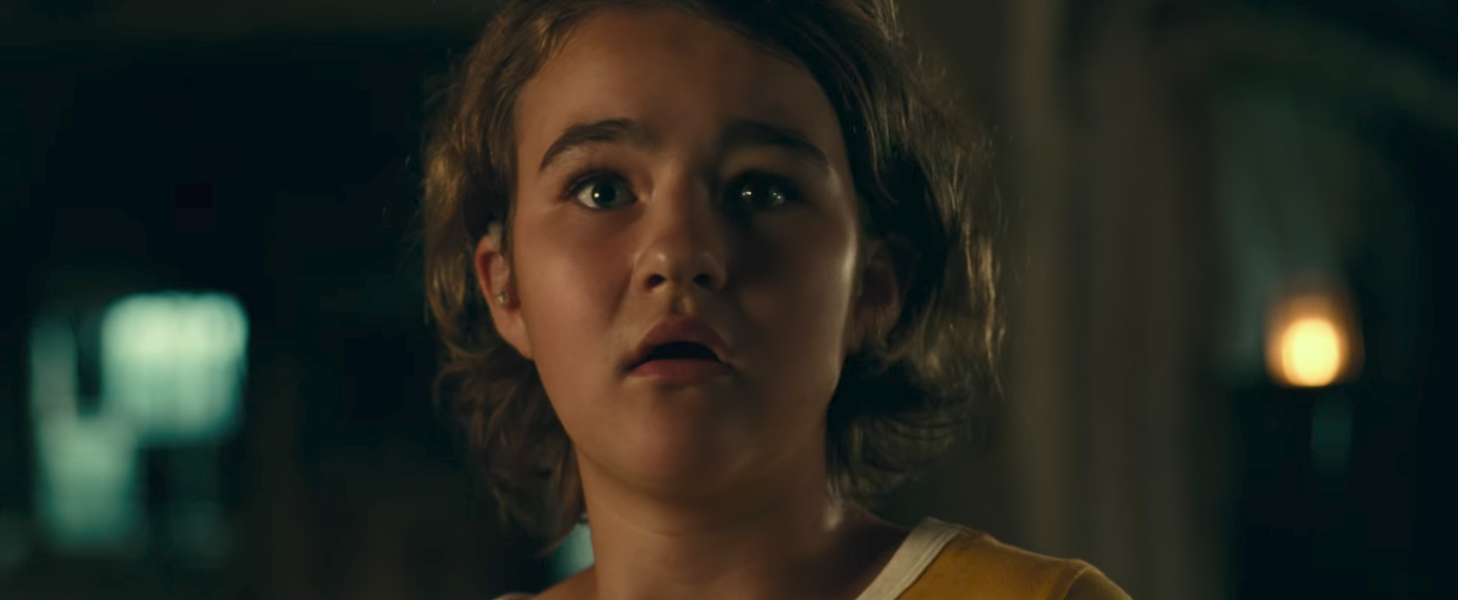
This is contrasted by close-ups of the leads. Krasinski and Emily Blunt play Lee and Evelyn Abbott. Their children are played by Millicent Simmonds and Noah Jupe. The performances by the elder Abbotts are very good in their own right. They perfectly display the paranoia, guts, stress, and determination it takes to survive in the world they’ve found themselves in (all with almost no dialogue, remember). While impressive, it’s the children who shine. Like their parents, the younger Abbotts are stressed to the max. Lacking the tools to fully handle the situation, they both react differently. Regan (Simmonds), who is deaf in real life, is independent and rebellious. She’s also guilt-ridden over the tragedy of the first act. Marcus (Jupe), the younger of the two, is timid and wary of learning the skills he’ll need to survive. He’s also wise, possibly the wisest of the whole bunch. Silent actors usually wind up over-acting, thinking they need to over-exaggerate their facial expressions. The opposite is true here. The expressiveness in nearly reserved, especially for a film that relies on it for exposition.
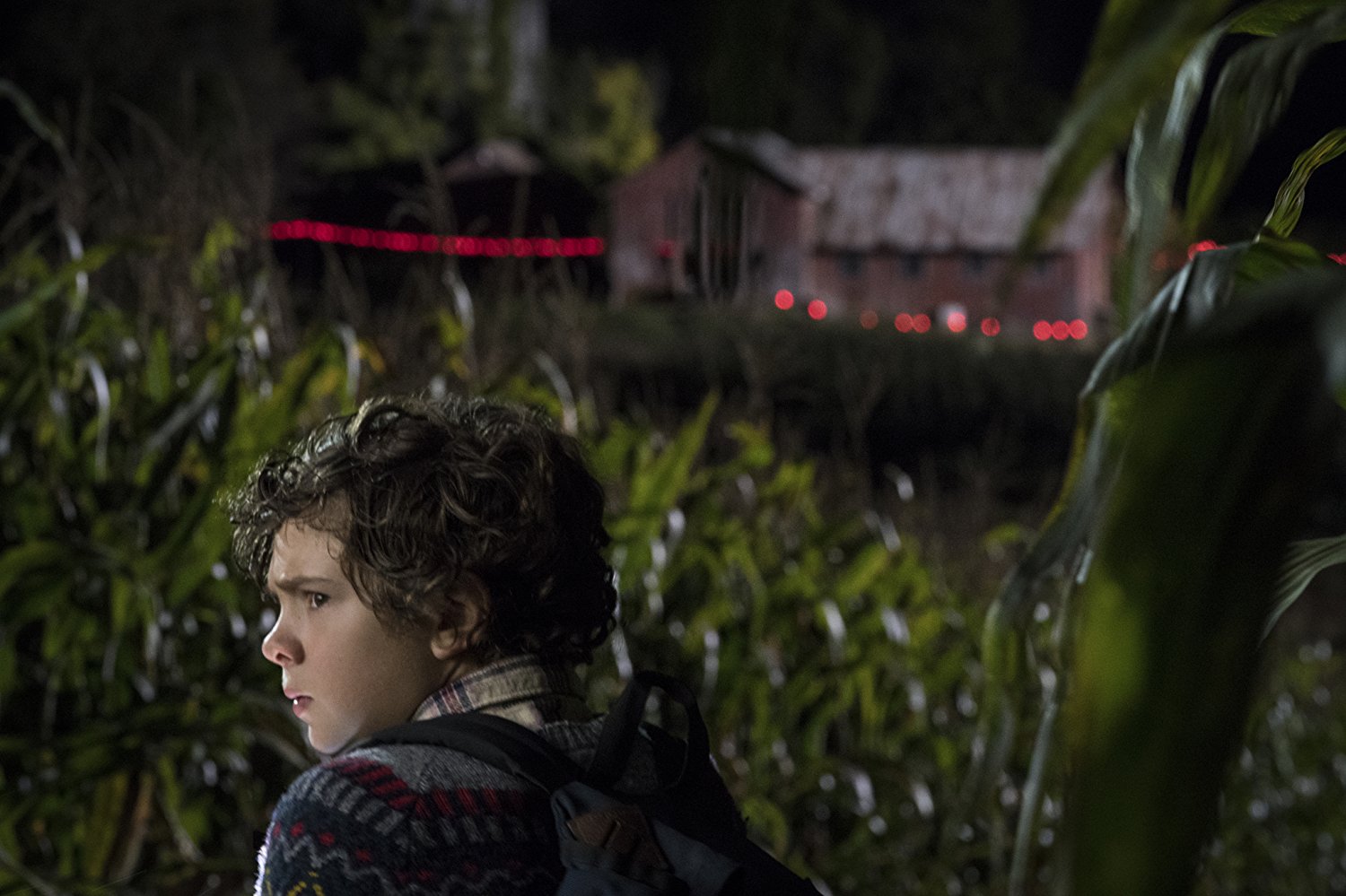
I do have a few small gripes. While
A Quiet Place doesn’t
rely on jump scares for its creeps, it uses them a bit too heavy handedly at times. For many, I imagine, this is a plus, but I like mine a bit more few and far between. With the near complete lack of sound for much of the movie, it’s a little too easy to make us jump with a sudden noise.
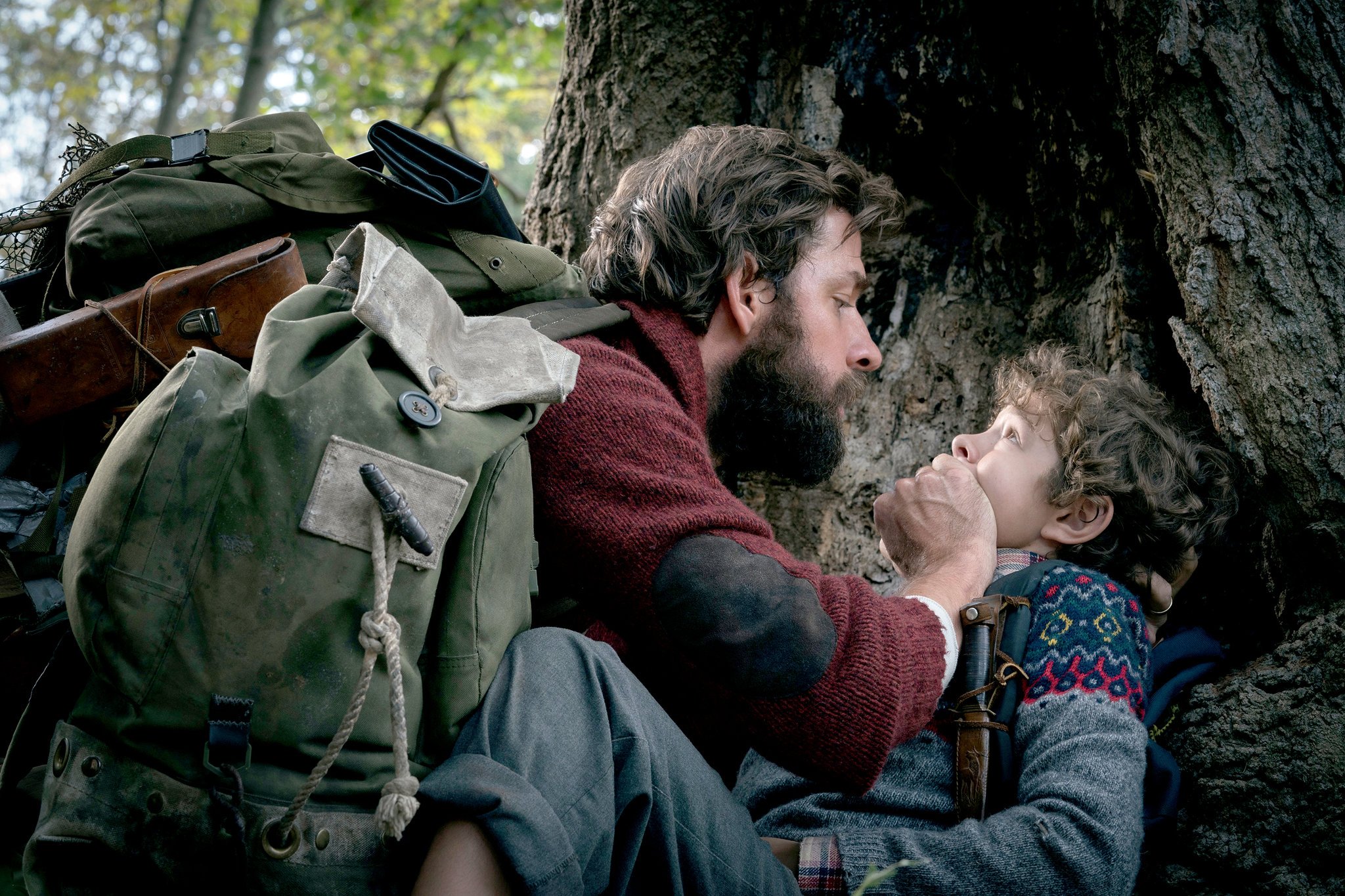
My other complaint lies with the creature. It’s an effective monster (bad CGI would have thrown the entire film right off those rails I mentioned), we simply see too much of it. Call me old-fashioned but I’m much more afraid of what’s unseen.
Jaws (1975) is of course the perfect example of how it’s done, with
Alien (1979) being a close second (even
Alien shows too much by the end for my taste). The shots of the creature skulking around in the background, out of focus and obscured, are the most effective. Krasinksi takes his time with the full reveal, which is good, but we still end up becoming comfortable with its nasty visage, which is not good. There’s nothing wrong with a “You’re gonna need a bigger boat” moment, but it should be used cautiously and sparingly.
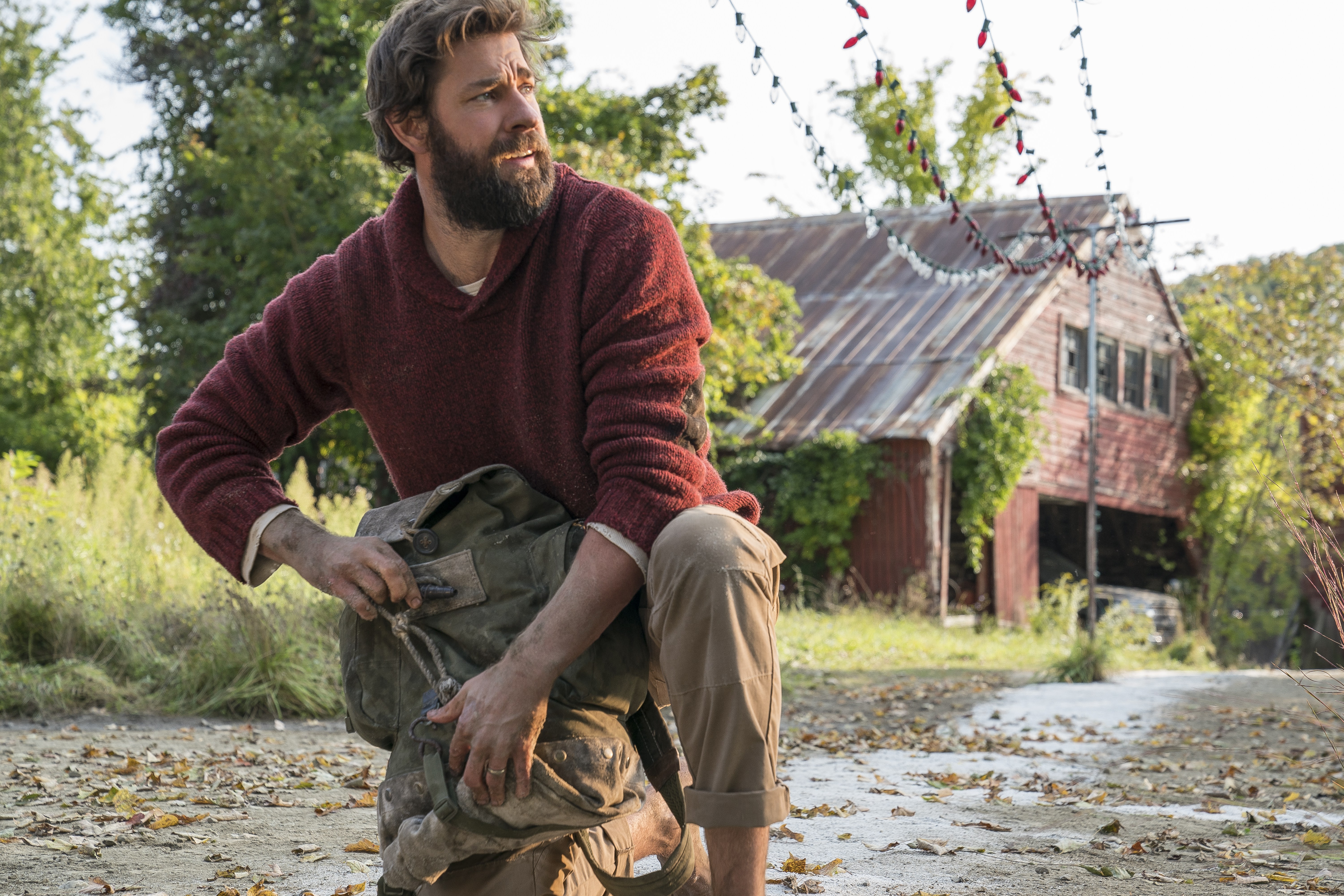
All told,
A Quiet Place is a nail-biter and a hell of a lot of fun. It won’t go down in history, but it may influence studios into letting more movies like it get wider distribution. Krasinski has shown us what he’s capable of and I hope to see more. No, it’s not a think piece, but in an industry that generally churns out horror that’s nothing more than paint-by-numbers, it’s a welcomed change—or maybe a call back—to the age-old genre.
A Quiet Place opens Friday, April 13th at
Grail Moviehouse, and is currently playing at Asheville area theaters.
For more film reviews, plus record reviews, podcasts, and more, please visit
THE DAILY ORCA.
Become a patron of James Rosario and The Daily Orca by visiting their
PATREON page.